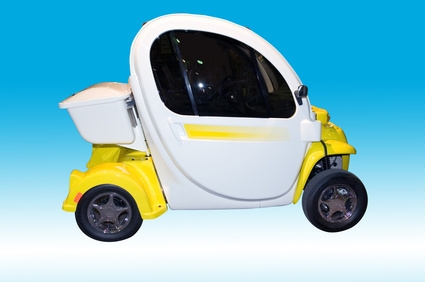
Electric cars are one answer to the problem of air pollution caused by gasoline-powered vehicles. While electric cars may become the better choice someday, today it is a toss-up on which type of car pollutes more. Electric cars don't directly pollute, but generating the electricity that electric cars need is a major source of air pollution, according to Nutramed.com, a website of Environmed Research Inc.
Using electricity that is generated from dirty sources, like coal, may create more pollutants than internal combustion vehicles do, according to MrSharkey.com. But, electric vehicles that are charged from clean energy, like hydroelectric power, will not produce much pollution at all. Most regions that produce electric cars use a combination of the two as their energy source.
The problem with electric cars using coal to generate the electricity needed for batteries is the pollution that coal smokestacks produce. A report by Natural Resources Defense Council in USA Today shows that significant increases in soot and mercury will likely be the result of burning more coal. Soot is a breathing hazard, and mercury is toxic. Heavy coal states are not good areas to produce electric or hybrid cars, according to Howard Learner, executive director of the Environmental Law and Policy Center in the USA Today article.
Another problem with plug-in electric vehicles is that they produce more sulfur dioxide and carbon dioxide than other vehicles do, according to a Minnesota Pollution Control Agency Study in the USA Today article. Sulfur dioxide is responsible for acid rain and carbon dioxide is a greenhouse gas that could be harmful to the environment. The Minnesota study also confirmed a jump in sulfur dioxide even from electricity generated from wind power.
Besides pollutants from coal, battery disposal is another source of pollution with electric cars. Many electric-car batteries are lead-acid based. People need to replace batteries in electric cars every 20 to 25 thousand miles. While disposal of such batteries creates an obvious problem of contaminating the environment when not properly disposed of, one probable solution is that these batteries will become more rechargeable.
California shows an example of clean power plants generating energy for electric cars. California has natural gas-burning plants and hydroelectric generators, both of which are clean. One study from the Natural Resources Defense Council in the MrSharkey.com article predicts that electric vehicles in California will reduce pollutants between 37 percent and 99 percent, with the exception of sulfur dioxide.